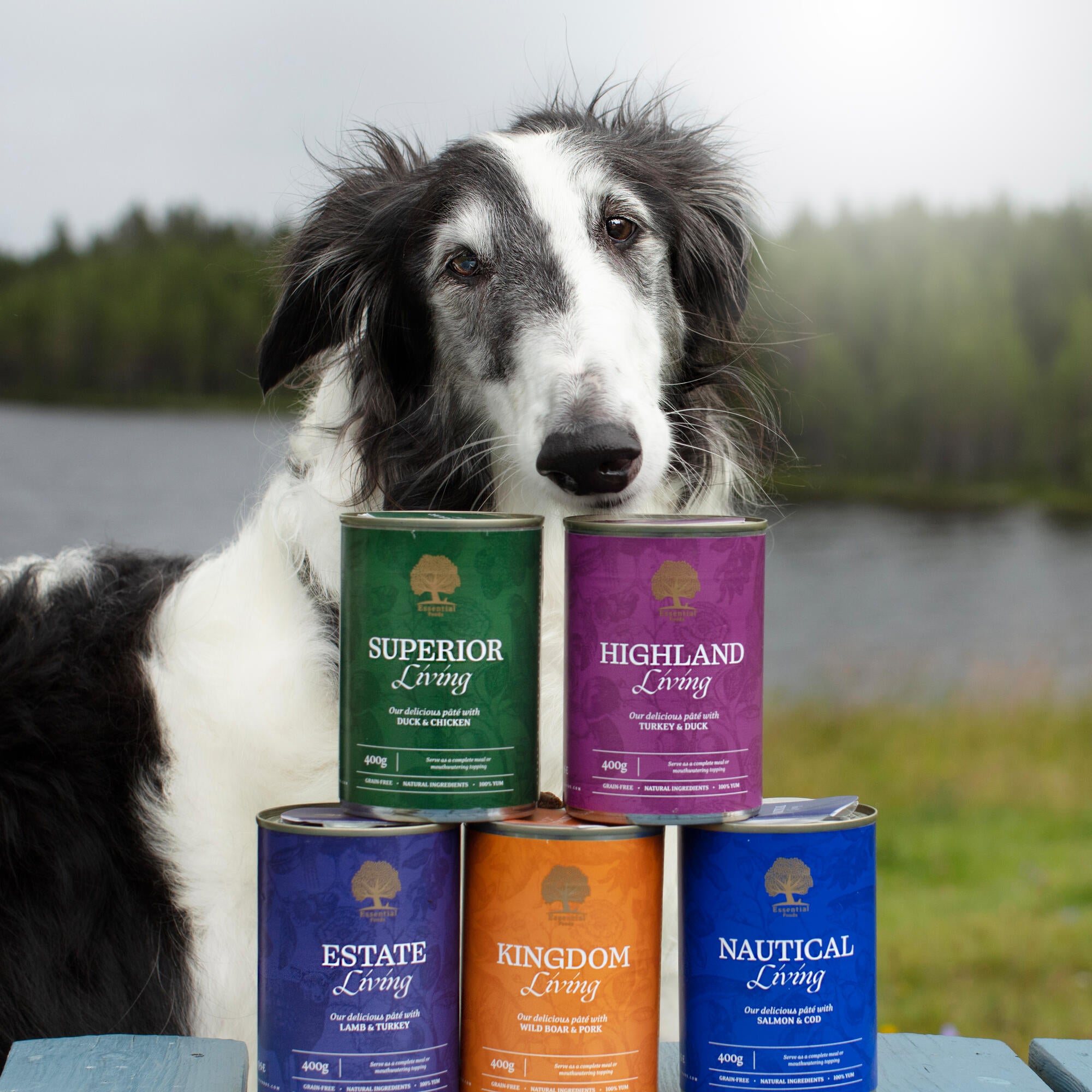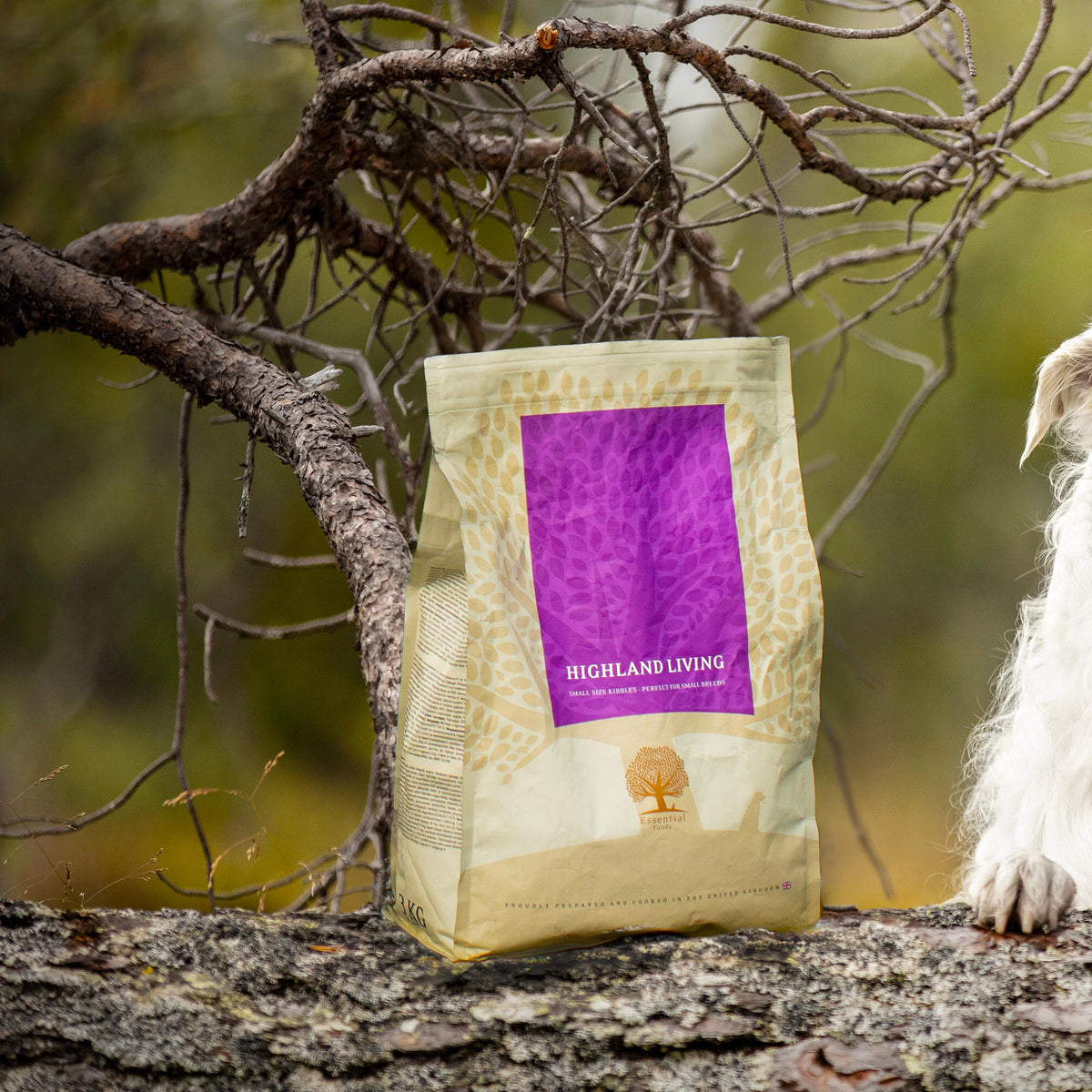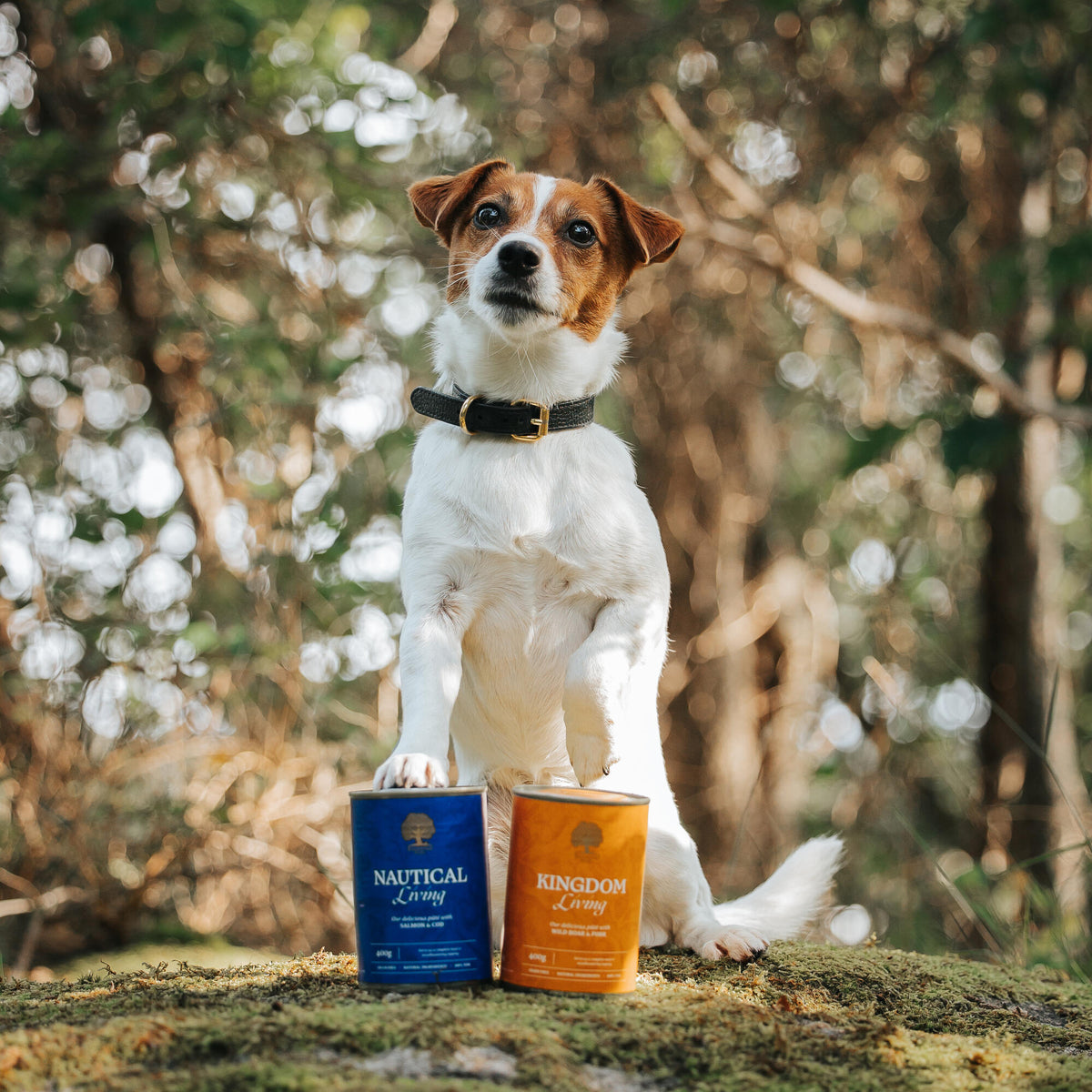Your Cart is Empty

Choosing the right dog food can feel overwhelming, but it's crucial for your furry friend's health and happiness. With so many options available, from puppy food to natural and grain-free choices, understanding your dog's specific nutritional needs will help you make the best decision.
Puppies have unique nutritional needs that differ significantly from adult dogs. Puppy food is formulated to support their rapid growth and development, providing higher levels of protein, fat, and essential nutrients.
Look for puppy food that includes high-quality proteins, DHA for brain development, and the right balance of vitamins and minerals to support healthy bones and teeth.
As dogs mature, their nutritional needs change. Adult dog food typically contains fewer calories and lower fat content compared to puppy food to prevent obesity.
Adult dogs require a balanced diet rich in proteins, carbohydrates, fats, vitamins, and minerals. Look for foods with high-quality protein sources, like chicken or fish, and avoid fillers.
Senior dogs may require fewer calories but more fiber to aid digestion. Foods formulated for seniors often include joint-supporting ingredients like glucosamine and chondroitin.
Older dogs are prone to issues like arthritis, obesity, and dental problems. Choosing a senior-specific diet can help manage these conditions and improve their quality of life.
Natural dog food is made without artificial additives, preservatives, or fillers. It’s packed with wholesome ingredients that support overall health.
Ensure the natural dog food you choose is well-balanced and contains high-quality proteins, whole grains, and vegetables. Avoid foods with artificial colors or flavors.
Grain-free dog food excludes common grains like wheat, corn, and soy. It’s often recommended for dogs with grain sensitivities or allergies.
While grain-free diets can be beneficial for some dogs, they may not be necessary for all. Ensure the diet is still balanced and provides all essential nutrients.
Wet dog food is highly palatable and can be easier to digest, making it a good option for picky eaters or dogs with dental issues.
Dry dog food is convenient, helps keep teeth clean, and typically has a longer shelf life. It’s also often more economical.
Symptoms of food allergies in dogs can include itching, gastrointestinal issues, and ear infections. An elimination diet can help identify the offending ingredient.
Hypoallergenic dog food is formulated without common allergens. Look for foods with novel protein sources and limited ingredients.
Weight management dog food is lower in calories and higher in fiber to help dogs feel full while losing weight.
Regular exercise, portion control, and choosing the right diet are key to maintaining your dog’s healthy weight.
Always read the ingredient list on dog food labels. The first ingredient should be a high-quality protein source, and the food should be free from artificial additives.
Choose brands that adhere to high-quality standards and have undergone rigorous testing to ensure the safety and nutritional value of their products.
Essential Dog Food offers a grain-free option with a high protein content, which supports muscle maintenance and overall health.
The B.O.F. (Behavioral Optimising Foods) principle is designed to keep your dog's blood sugar stable, promoting better behavior and health.
With a focus on high-meat content and excellent palatability, Essential Dog Food ensures your dog gets the best nutrition without compromising on taste.
Your vet can provide personalized nutrition plans tailored to your dog’s specific needs, considering factors like age, weight, and health status.
Regular vet check-ups can help monitor your dog’s health and make necessary dietary adjustments as needed.
When switching dog foods, do it gradually over 7-10 days to prevent digestive upset. Mix increasing amounts of the new food with the old food.
Observe your dog for any adverse reactions during the transition period. If you notice issues like vomiting or diarrhea, consult your vet.
Choosing the right dog food is essential for your dog's health and happiness. With careful consideration of their nutritional needs and preferences, you can ensure they get the best diet possible. Essential Dog Food, with its grain-free, high-protein, and B.O.F. principles, stands out as an excellent choice for dog owners who want the best for their furry friends.
The best dog food for puppies is one that provides high-quality protein, DHA for brain development, and a balanced mix of vitamins and minerals.
Signs of food allergies in dogs include itching, gastrointestinal issues, and chronic ear infections. An elimination diet can help pinpoint the allergen.
Grain-free dog food can be beneficial for dogs with grain sensitivities or allergies. However, it's important to ensure the diet is still nutritionally balanced.
It's generally not necessary to change your dog's food frequently unless advised by your vet. If changing, do it gradually to avoid digestive issues.
Yes, mixing wet and dry food can provide a balanced diet and improve palatability. Ensure both types meet your dog's nutritional needs.


